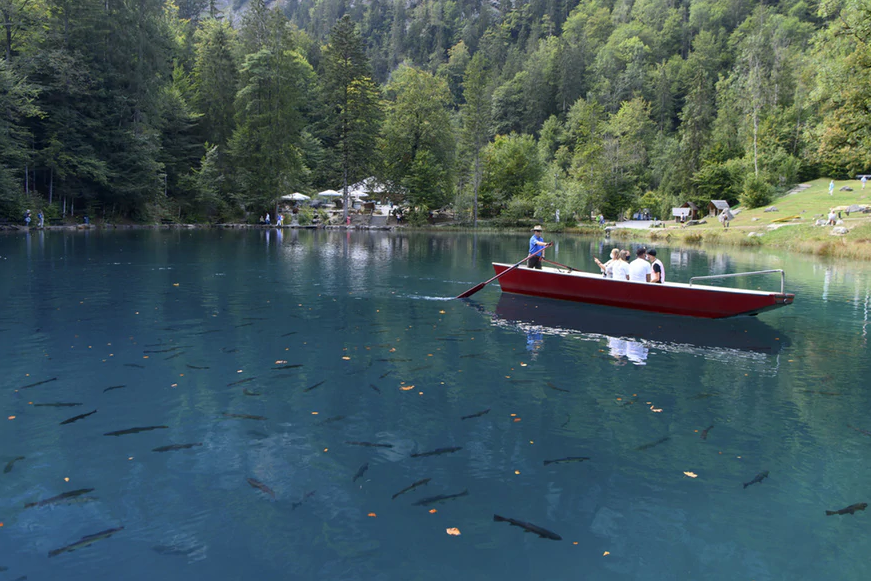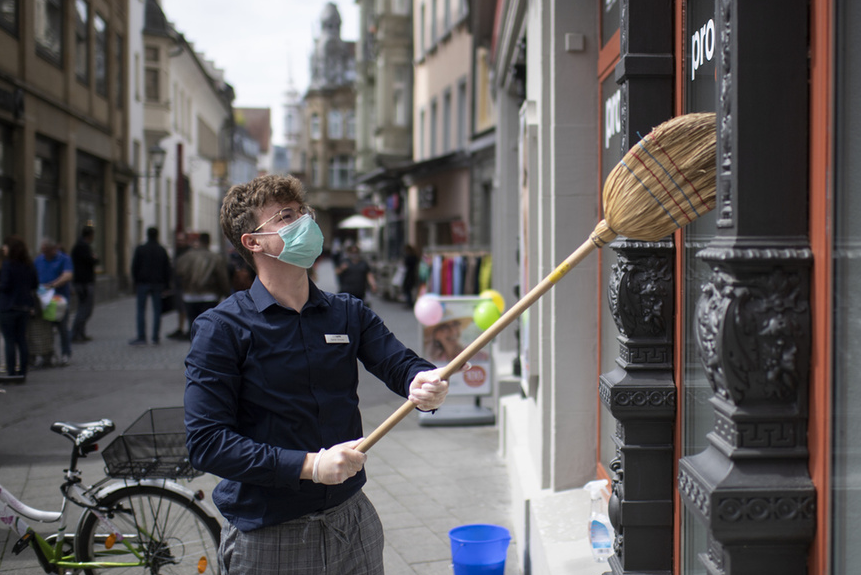The Blausee is one of the most popular mountain lakes in Switzerland Keystone Carcinogenic toxins have seeped into the groundwater at the Blausee in the Bernese Oberland, killing thousands of fish, say the owners of the lake’s fish farm. They point the finger at companies renovating the Lötschberg summit tunnel and the authorities. Groundwater measurements at the gravel works near Blausee had shown that the concentration of so-called PAHs (polycyclic aromatic hydrocarbons, some of which can cause cancer) were 424,000 times the limit value, said Stefan Linder, one of the Blausee owners. Speaking at a press conference in Bern on Thursday, Linder said further results from water samples taken from the gravel pit also showed high excess values for heavy metals such as
Topics:
Swissinfo considers the following as important: 3.) Swiss Info, 3) Swiss Markets and News, Featured, Latest News, newsletter
This could be interesting, too:
Nachrichten Ticker - www.finanzen.ch writes Die Performance der Kryptowährungen in KW 9: Das hat sich bei Bitcoin, Ether & Co. getan
Nachrichten Ticker - www.finanzen.ch writes Wer verbirgt sich hinter der Ethereum-Technologie?
Martin Hartmann writes Eine Analyse nach den Lehren von Milton Friedman
Marc Chandler writes March 2025 Monthly
Carcinogenic toxins have seeped into the groundwater at the Blausee in the Bernese Oberland, killing thousands of fish, say the owners of the lake’s fish farm. They point the finger at companies renovating the Lötschberg summit tunnel and the authorities.
Groundwater measurements at the gravel works near Blausee had shown that the concentration of so-called PAHs (polycyclic aromatic hydrocarbons, some of which can cause cancer) were 424,000 times the limit value, said Stefan Linder, one of the Blausee owners.
Speaking at a press conference in Bern on Thursday, Linder said further results from water samples taken from the gravel pit also showed high excess values for heavy metals such as lead and zinc.
He said the damage caused by the deaths of tens of thousands of fish amounted to CHF2 million ($2.2 million). A claim for damages was certainly being prepared, he said, but first the polluter had to be identified.
‘Obvious’ connection
On Wednesday it was revealed that since 2018 masses of trout had died in the fish farm of the Blausee, a popular tourist destination.
The Blausee operators assume this is because of toxins in the groundwater which feeds the Blausee and one of the tanks in the fish farm. The fish died only in this tank, said Linder, but not in the others, which were fed by springs.
They believe that the toxins come from the gravel and tar-treated railway sleepers [railroad ties] that were in the Lötschberg summit tunnel, which has been undergoing renovation since August 2018. The current track is being removed and replaced by a concrete foundation.
The old ballast and railway sleepers are being unloaded, separated and transported further on the site of the Mitholz gravel works near Blausee. By mid-June, however, around 1,000 tonnes of fine material had also been dumped there – until canton Bern intervened after the Blausee operators reported their suspicions.
This dumping had taken place illegally, said Jacques Ganguin, head of the Bernese Office for Water and Waste, on Wednesday. The concept was for all material to be taken to a specialised plant in the municipality of Wimmis and washed there, he said.
The Blausee operators accuse the Bern authorities of having proceeded inadequately or with inappropriate delay with the companies responsible.
Since the ban on dumping the tunnel excavation material in Mitholz, fish mortality at the Blausee had fallen massively, they said. The temporal, spatial and factual connection with the tunnel renovation was therefore “obvious”.
‘Scandal’
Geologist Hans Rudolf Keusen, who was present at the media conference, spoke of a “scandal”. He said he had serious doubts that preliminary investigations made prior to the tunnel renovations had been carried out and interpreted correctly.
It had been known for many years that the gravel plant in Mitholz was located directly above a groundwater stream, he said. “That’s why a landfill ban was in force there.”
For their part, the local authorities said drinking water was unaffected and absolutely fine since it came from springs and not groundwater.
A criminal case has now been opened by the public prosecutor’s office for the Bernese Oberland. It is being conducted because of suspected violations of the law on water protection, environmental protection and cantonal waste management.
Tags: Featured,Latest news,newsletter









